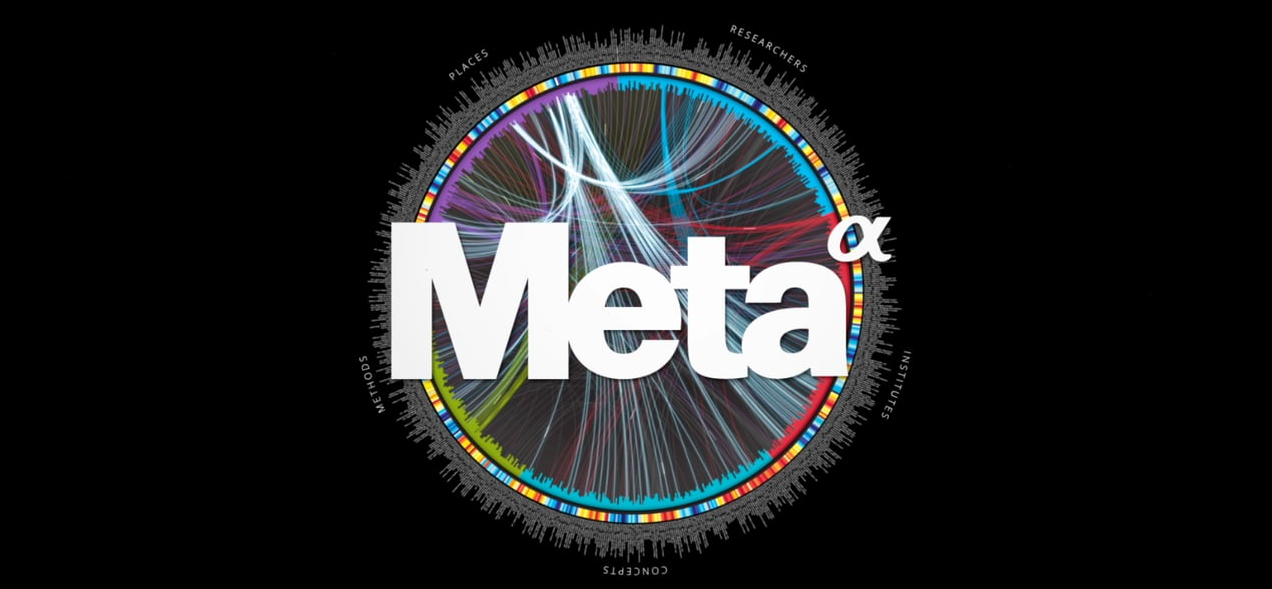Opening Meta
Yesterday, the scholarly communication + AI startup Meta signed an agreement to be acquired by the Chan Zuckerberg Initiative (CZI). Aside from the initial news a few weeks ago and Joe Esposito’s article in the Scholarly Kitchen, I’ve seen few people remark on it.
But it’s a big deal.
A serious piece of scholarly infrastructure is being made open, free and effectively non-profit. Meta has built a cutting edge system to mine scholarly papers new and old, and allow the data to be employed in diverse ways–predicting discoveries before they’re made, projecting the future impact of papers just hours old, and unlocking the potential for innumerable applications applying computation at scale across scientific literature. In what must have taken extraordinary patience, persistence and a lot of finesse, they managed to secure access to some of the most strategic closed content in the scholarly world.
I’m not an expert in AI, but I don’t need to be one to understand why this is headline news.
It’s the act of releasing this technology to the scientific community and operating it as a public benefit that changes everything. Regardless of what Meta have built so far (which is no doubt tremendous) the vision they have, the resources at their disposal, and the mindset they’re committed to will have tremendous impact moving forward– because they’re now operating in the public interest.
Of course closed technology can scale to large impacts too–most of what we use daily fits that description–but open technologies carry with them a force multiplier many times their closed counterparts, because what’s developed can be copied, extended, remixed, and reused by others. Just as important, when technologies are created as open and nurtured by non-profits, decisions about them are made differently. The objective for founders and investors in for-profits is often “how can I make the most, regardless of benefit to others” rather than “how can I return the most to others, regardless of how much I make”. By contrast, open companies partner, they share what they know, they open their APIs, and fundamentally their goal is to form an ecosystem that moves forward together, not a hypercompetitive zero sum battlefield.
While open source software represents an increasingly large portion of the code base in use, only a few independent organizations dedicate themselves to creating and operating open, non-profit scientific or scholarly infrastructure. Beyond Crossref, ORCID, Wikimedia, JSTOR, PLOS, Project Jupyter, Hathi Trust, Internet Archive, CoKo, Center for Open Science, OJS, DAT, rOpenSci, ContentMine and Hypothesis, few others come to mind. I’m sure I’m forgetting a few, but not many.
There’s a simple reason for this. Tech non-profits are hard to start, and they’re hard to start because they’re incredibly hard to fund. Beyond the Sloan, Shuttleworth, Mellon, Omidyar, Knight, Arnold and Moore foundations, there are few funders who provide early stage seed funding for technology non-profits. Unlike in the venture world, where a massive ecosystem of funders exists to underwrite the full spectrum of growth phases, getting beyond the initial year or two as a tech non-profit is so difficult as to be nearly impossible.
Narrow the discipline, and it gets worse. If you’re focused on scholarly pursuits, you can cross Knight off your list. Science only? Cross off Mellon and probably Omidyar too.
Meta, of course, was conceived as a for-profit, backed by venture capital, which makes it even more unusual that we’ve arrived at this outcome– namely that its founders, its investors, its board and its employees agreed to an acquisition that valued a long term mission outcome over financial gain. While I don’t know the particulars of the agreement, I’ve been involved in enough venture financings and acquisitions to know that selling your valuable assets for what I presume were modest amounts to an organization which is going to make them free and open is not a decision made for purely financial reasons.
Sam Molyneux, the CEO of Meta, and I had the opportunity to chat a few weekends ago, and he was clear that the reason he and his sister Amy started Meta in the first place was because of the extraordinary opportunity to bring these powerful capabilities to researchers, as a way to increase the efficiency and metabolism of human discovery. As they were putting their next round of funding together they were approached by CZI, and the decision they had to take became clear to him.
My goal in writing this is to recognize and applaud Sam and Amy for this decision. We need more funders in the tech non-profit space, but we also need more entrepreneurs who make these kinds of difficult decisions. That’s where it all starts.
My hope is that if others see how much a decision like this is valued and appreciated by their peers and the larger community, and how it can bring rewards that far exceed the financial, more will follow.
Thank you both, and welcome to our family.
